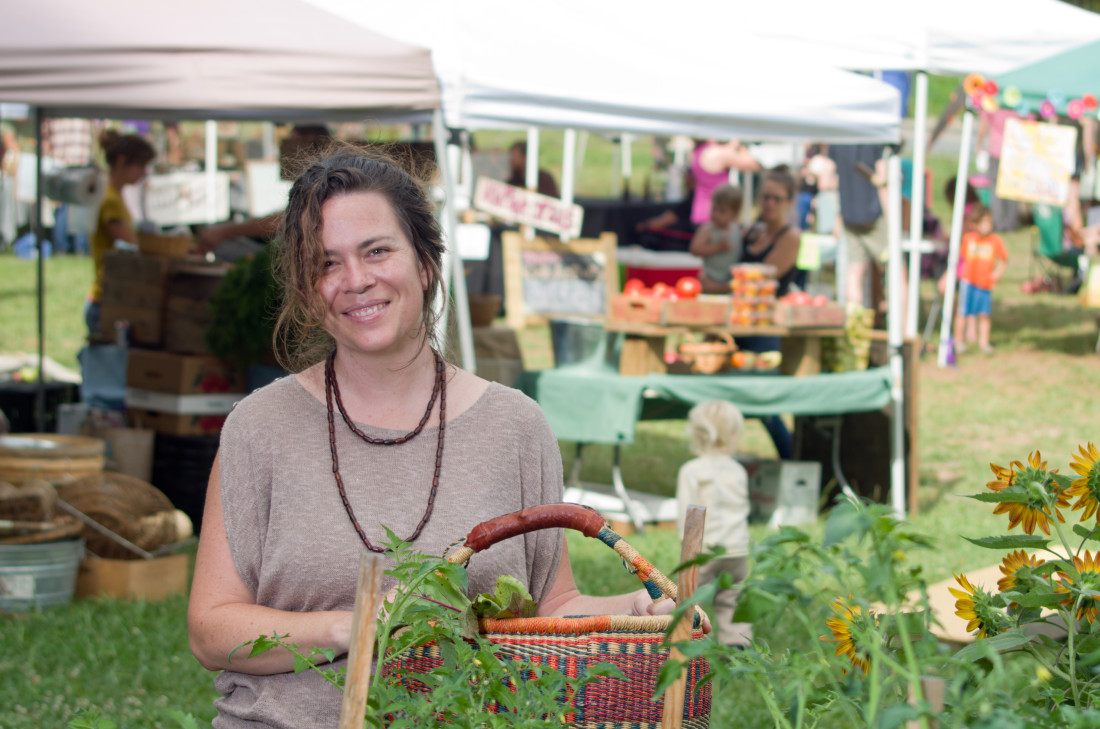The Asheville Buncombe Food Policy Council took a major step forward when it hired Mary Ellen Lough as its first paid coordinator in June. Lough, a Haywood County native, UNC Asheville graduate and mother of five, has more than a decade of experience as a social activist and community organizer.
As the former vice president of Fisher Park, a recreation area in the Olney neighborhood of Philadelphia, she was instrumental in helping develop community gardens to supply food for residents in need. After leaving Philadelphia, she and her family relocated to the United Kingdom where she worked with World Harvest in London supporting fair-trade organizations working with Southeast Asian immigrants.
“I’ve always been thinking a lot about regional economics, local and urban agriculture; that’s always been a focus in my life,” she says. “But when we were overseas, I realized that fair trade wasn’t enough, which has moved me more towards local resilience and local systems that can weather a changing global economy.”
With its decision to hire a part-time paid coordinator, the all-volunteer council aims to reduce volunteers’ stress and workload, hopefully enabling everyone within the organization to be more productive. The grant that funds Lough’s position provides compensation for 15 hours per week for six months expiring in December, so one of Lough’s main goals of the coming months is to secure more funding for the position itself.
Despite being completely volunteer-driven since its inception in 2011, the ABFPC has been active, successfully pushing for local government policy permitting urban farming and to allow farmers to have streetside stands to sell their goods. The group also helped develop Buncombe County’s Community Health Improvement Process, or CHIP program, which assesses health gaps in food systems and works to bring fresh, healthy, local foods and produce into the area’s food deserts.
“There are several food deserts in Asheville,” Lough explains, “places where people don’t have access to healthy food within a mile of their neighborhood or community. One solution has been to get convenience stores to carry produce and local options for people in their neighborhoods.
“There is a lot of talent and expertise on this council,” she adds. “It’s made up of a lot of amazing who are all doing really great work in our community, but until now, there’s been no one who has been able to step forward to build the capacity of the council to meet its goals. So we’re hoping to maximize the potential that the Food Policy Council already has to be a strategic and effective organization in the community.”
For more on the ABFPC’s recent initiatives, check out this story by Jonathan Ammons.






Before you comment
The comments section is here to provide a platform for civil dialogue on the issues we face together as a local community. Xpress is committed to offering this platform for all voices, but when the tone of the discussion gets nasty or strays off topic, we believe many people choose not to participate. Xpress editors are determined to moderate comments to ensure a constructive interchange is maintained. All comments judged not to be in keeping with the spirit of civil discourse will be removed and repeat violators will be banned. See here for our terms of service. Thank you for being part of this effort to promote respectful discussion.